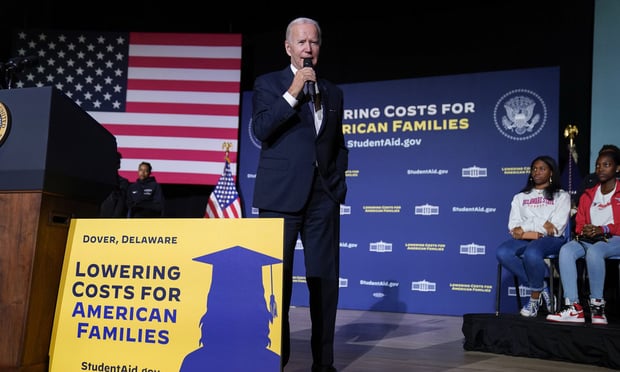(Bloomberg) -- House Republican leaders began rolling out atax bill Thursday that contains sweeping changes for business and individual tax rates, including ameasure to cut the corporate tax rate to 20 percent.
|The bill would cap the mortgage-interest deduction on new home sales at $500,000 -- adeparture from the current cap of $1 million for couples filingjointly, according to a memo written by the House Ways and MeansCommittee.
|The National Association of Realtors, which has been wary of thetax plan, said the memo “appears to confirm many of our biggestconcerns.”
|Another provision that’s likely to provoke controversy would taxlarge university endowment income at 1.4 percent. That measure,described by a Republican aide, would apply to schools with assetsof more than $100,000 per student. It would exempt small schools,said the aide, who asked not to be named because the bill isn’t yetpublic.
|The bill would also impose a tax of as much as 12 percent onmultinational companies’ accumulated offshore earnings, a GOPlawmaker said -- a rate that’s higher than either President DonaldTrump or House Speaker Paul Ryan have proposed. It would phase outthe estate tax over years, more slowly than either of them wouldprefer.
|The bill will include “no changes” to popular 401(k) retirementplans, according to a House memo, and it’s not expected to repeal the Obamacare individual mandate. Itwould cut individual tax rates for millions of Americans, but notfor earners at the very top of the scale, lawmakers have said.Keeping the top rate at 39.6 percent won’t please conservatives whowant across-the-board cuts.
|The legislation won’t satisfy everyone, but it representsTrump’s last chance for a major legislative victory in his firstyear. To pass it by Christmas, as the president has called onCongress to do, lawmakers must prevail over a series of challengeswith no real margin for error. The first test comes Monday, as theHouse Ways and Means Committee is scheduled to take up thebill.
||The long-awaited legislative text arrives Thursday, the same daythat Trump is expected to name Federal Reserve Governor JeromePowell to the top job at the U.S. central bank. The formerprivate-equity executive favors continuing gradual interest-rateincreases and would preside over what Trump has promised as robustgrowth -- should the planned tax overhaul come to fruition. “PushBiggest Tax Cuts EVER,” Trump said on Twitter Wednesday.
|The 2018 budget resolution approved by the House and Senateallows for tax legislation that would increase the federal deficitby $1.5 trillion over 10 years, before accounting for any growththat might result from the changes. Figuring out how to achieve thedeep rate cuts that Trump, Ryan and others want while stayingwithin that bright line has complicated the bill drafters’ task.Earlier this week, House officials postponed the legislation’splanned release by one day.
|On Thursday, they’ll unveil a bill that took months to write. Itmay be rewritten over the weekend, at least in part -- though whichprovisions would change is unclear.
|‘Bring solutions’
House Ways and Means Chairman Kevin Brady, theTexas Republican who’ll manage the bill, said late Wednesdaythat he may have a revised version in time for Monday’s hearing.“Are there some areas where we’ve asked people to bring solutions?Yeah,” he said.
|Representative Carlos Curbelo, a member of the panel, said there“may be some” differences in the legislative text by the time thecommittee begins its work. “It’s settling; it’s all settling,” hesaid. Details began to emerge late Wednesday.
|The child tax credit would be increased to $1,600 from $1,000per child under 17, with an additional $300 credit for each parentas part of a consolidated family tax credit, according to the Housememo. The credit had been a priority for Ivanka Trump, who had metwith lawmakers in recent weeks to discuss it.
|One key consideration involves a compromise that Brady offeredon tax breaks for individuals in high-tax states: allowingindividuals to deduct the cost of their state and local propertytaxes. That benefit would be capped at $10,000, according to thememo.
||‘One by one’
It was unclear Wednesday how many lawmakers would be won over byBrady’s offer to preserve an individual deduction for state andlocal property taxes. “They’re working over concerned lawmakersone-by-one at this point,” Representative Tom MacArthur, a NewJersey Republican, said of GOP leaders.
|“We are close,” said Representative Tom Reed of New YorkWednesday evening. “We are going to be able to solve thatproblem.”
|Members of the Ways and Means panel met late into the nightWednesday as they discussed yet another issue: placing limits on aproposed tax cut for many businesses organized as partnerships,limited liability companies and other so-called pass-throughs.Currently, such companies pass their earnings through to theirowners, who are taxed at their individual income rates -- which canbe as high as 39.6 percent.
|The bill would reduce the top rate to 25 percent -- but placelimits on the kind of income that would qualify, said a personaware of the details. First, “professional services” -- includingdoctors, lawyers, accountants and others -- wouldn’t qualify forthe rate.
|Other business owners could chose one of two options: 1.Categorize 70 percent of their income as wages -- and pay theirindividual tax rate on it -- and 30 percent as business income,taxable at the 25 percent rate. Or 2. Set the ratio of their wageincome to business income based on the level of their capitalinvestment.
|The guidelines are aimed at preventing abuse of the 25 percentrate -- such as high-earning individuals forming themselves intocorporations to get a tax cut.
|Trump and others have pitched the pass-through plan as a boonfor small businesses -- but pass-throughs can be very largebusinesses in addition to mom-and-pop shops. Trump himself ownshundreds of limited liability companies, according to his federalfinancial disclosure.
|Setting limits on the pass-through rate is a touchy issue for anumber of lawmakers.
|“I want to make sure the pass-through rate for small businessesis actually a pass-through rate for all businesses -- I’m hearingthat may not be the case, and that is a problem,” saidRepresentative Mark Meadows, a North Carolina Republican and thechairman of the House Freedom Caucus.
|Earlier Wednesday, Meadows predicted a bumpy ride for the Housebill, saying it would unleash dissent “like you’ve never seen.”Still, that doesn’t mean the effort will fail, he said.
|“It may be a little messy, it may not be as fun as we would allhave liked to have seen it be over the past few weeks,” Meadowstold reporters. “But we’re going to get it done, and failure is notan option.”
|Copyright 2018 Bloomberg. All rightsreserved. This material may not be published, broadcast, rewritten,or redistributed.
Complete your profile to continue reading and get FREE access to BenefitsPRO, part of your ALM digital membership.
Your access to unlimited BenefitsPRO content isn’t changing.
Once you are an ALM digital member, you’ll receive:
- Critical BenefitsPRO information including cutting edge post-reform success strategies, access to educational webcasts and videos, resources from industry leaders, and informative Newsletters.
- Exclusive discounts on ALM, BenefitsPRO magazine and BenefitsPRO.com events
- Access to other award-winning ALM websites including ThinkAdvisor.com and Law.com
Already have an account? Sign In
© 2024 ALM Global, LLC, All Rights Reserved. Request academic re-use from www.copyright.com. All other uses, submit a request to [email protected]. For more information visit Asset & Logo Licensing.








